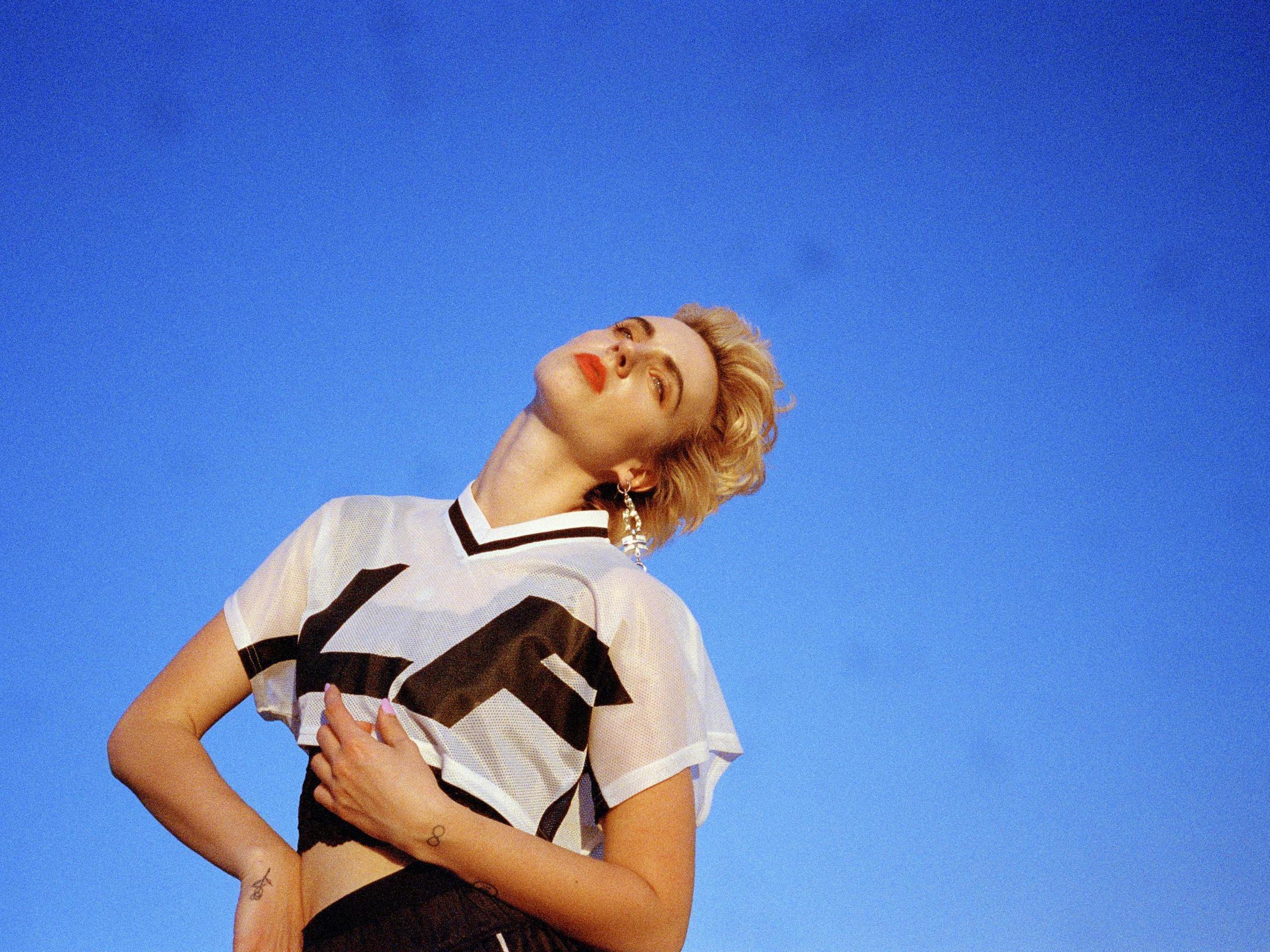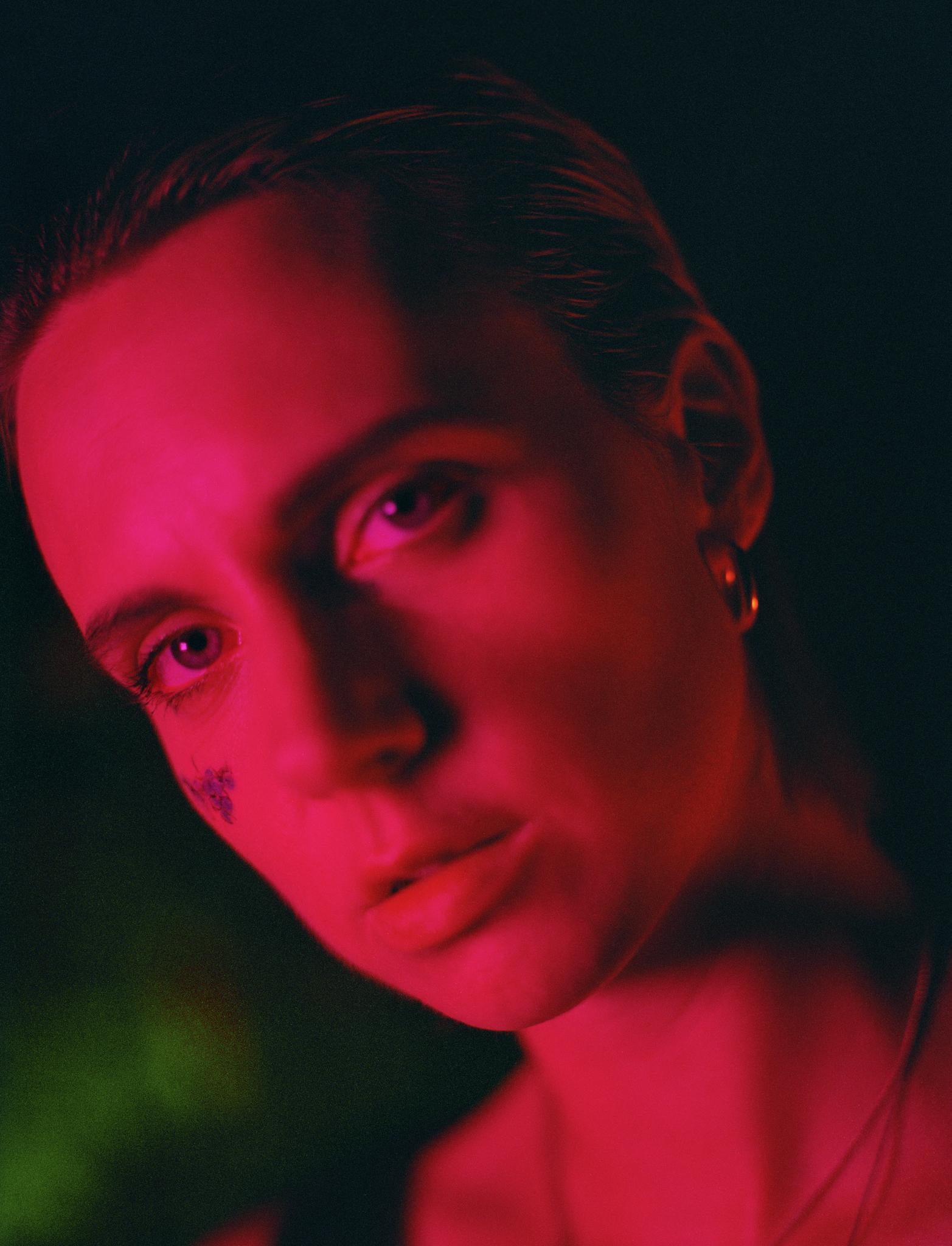MØ interview: 'Everything's going crazy conservative'
Karen Ørsted went from obscure artist to bonafide pop star when her single 'Lean On' became the most listened-to track of 2015. She speaks with Douglas Greenwood about rediscovering her voice

When a Danish pop outcast accidentally winds up making the most listened-to track of the year, where does she go next? That’s something Karen Ørsted, known better to her fans as MØ, had to contend with back in 2015 when she went from being an obscure, alt-pop artist to a bonafide star – with the world watching her every move.
“Lean On”, her collaboration with Major Lazer and DJ Snake, broke every pop record imaginable – three times platinum, 2.4 billion hits on YouTube, and at one point the most-streamed song in Spotify history. It would have been a hard act for anyone to follow.
“It was a lot to digest,” the 30-year-old says over lunch in a London restaurant, “I had to ask myself: Who the f*** am I? In the middle of all of this, how do I find my own voice?”
Post “Lean On”, MØ found herself being carted around the world as a gold-standard star, working with the likes of Bleachers frontman and producer Jack Antonoff [Taylor Swift, Lorde, St Vincent] and performing at the ceremony for 2015’s Nobel Peace Prize. She seemed to be fatigued, an artist whose creative vision had blurred somewhat. MØ’s past, after all, had been more punkish: her debut record, 2014’s No Mythologies to Follow, harboured the kind of oddball pop beloved by bloggers, even though it failed to break the Top 40. What was once a direct process, shaped by creative intuition, now had a thousand interferences.
“I was in so many sessions with all of these amazing people,” she says, “but it was always just about producing one pop song after another and asking ourselves: ‘Is this a hit?’ I was so confused, because yes, I wanted a single, but I also wanted to find my own sound again.”
She’s almost apologetic about the idea of reclaiming her own musical narrative. “I don’t know why that means so much to me,” she shrugs, absentmindedly stirring the sugar into her latte until the foam dispels into brown milk. She seems enchanted by the motion of my fork, and watches that instead of making eye contact. “It’s super narcissistic, but I really wanted it,” she continues. “It’s like re-learning to believe in yourself. Sometimes when everything is moving so fast, it’s easy to lose the realisation that what I had [back then] was good enough.”
Last week, her keenly awaited and long-delayed record Forever Neverland was finally released. It’s a record about a pop star rediscovering her nerve, and everything that set her apart from the mainstream line up in the first place. Before her breakout, she’d occupied that strange pop no man’s land in which accessible chart tunes were obscured by strange sonic tics and laced with visceral honesty rather than mindless lyrical tropes. She’s always been a pop star, of course, but you get the impression that artifice or forced hits have never been part of MØ’s modus operandi.

After months of fruitless sessions, it was the track “Blur”, about being “creatively lost in Los Angeles”, that felt like a turning point. “With that song, I started to realise: ‘Hey Karen, you should be vulnerable in your songs and sing about how you feel’, instead of thinking, ‘Do we have a tagline?’ F*** that!” she scoffs, “We know nothing good is going to come out of it! You might as well follow your own guts rather than some old guy in a suit’s.”
MØ is keen to ensure that we know how grateful she is for the success of “Lean On”. Still, the idea that it also risked redefining her sound lingers in almost every memory of the album-making process she recounts. “It’s funny because it’s always been my mantra to not pretend I’m something I’m not,” she confesses, “but I’d forgotten about that a bit.”
Enjoy unlimited access to 100 million ad-free songs and podcasts with Amazon Music
Sign up now for a 30-day free trial. Terms apply.
ADVERTISEMENT. If you sign up to this service we will earn commission. This revenue helps to fund journalism across The Independent.
Enjoy unlimited access to 100 million ad-free songs and podcasts with Amazon Music
Sign up now for a 30-day free trial. Terms apply.
ADVERTISEMENT. If you sign up to this service we will earn commission. This revenue helps to fund journalism across The Independent.
The record’s title is a reference to our dangerous desires to stay young forever and avoid the reality of adult life; sufferers of so-called ‘Peter Pan Syndrome’. I wonder, perhaps, if this is a product of growing up in an age that has weighted us with the responsibility of future-determining decisions such as Brexit.
“With this whole right turn?” MØ asks, through a half-chewed mouthful of avocado on toast. “It’s f***ing insane. Politically, everything’s going crazy conservative. It’s like when something good is happening with young people, then the old, grey people in power will be like: ‘No! It cannot be like this!’ It’s a classic thing you see through history: a desperate pull for power, like the youth is out of control.” Her anarchic teenage past is simmering to the surface. “It’s f***ed,” she affirms, pausing for a second and summoning a smile. “But I have eternal hope in the youth.”
Pop music is a quietly political call to arms for those who seek solace in it, and its 2018 coup, MØ believes, is irrefutably in the hands of the genre’s women. “That’s what it looks like and that’s how I feel,” she says. “I always get happy when people say that’s the future. What Charli [XCX] is doing is revolutionary – she’s got pop music in her pocket – alongside SOPHIE. They’re both doing it really drastically.”
That lawless attitude glows in every note of Forever Neverland. In a time of obligatory hip hop verses on pop songs – a by-product of the chart’s obsession with its rap renaissance (“There was definitely a lot of talk about it. Trust me!” she claims) – MØ has thwarted expectations and given herself ample room to breathe, pretty much solo, across all 14 tracks. Only two vocal features pitch in, and both of them are women. A link up with the aforementioned Charli, a long-time friend, “felt like it had to happen”, and so she appears amid the skewed pop synths of “If It’s Over”. Meanwhile, Latin America’s R&B girl of the moment Empress Of – a member of MØ’s “sisterhood” – has a verse on “Red Wine”.
There’s not, however, a link up with another Nordic star. The so-called Scandipop scene has gained traction lately, thanks in part to the ongoing rise of artists like ALMA and Zara Larsson, and the imminent return of Robyn. MØ laughs at the mention of “Scandipop”, perhaps just because she’s thrown off by the way such a simple umbrella term can attempt to summarise the work of so many artists. Does it serve its purpose? “I think it makes a lot of sense, because even if people argue that my music and Zara’s music is a bit different, there’s still similarities between what we all make,” she says. “It’s just hard to put a finger on it”.
Maybe she has a point: there is an autonomy and honesty to the pop voices emerging from Scandinavia that so many other stars seem desperate to emulate. “That might be true: I guess there’s a little more melancholy in what we make than other countries,” she adds. “I totally get it, but it’s so hard for me to analyse because I’m in it.”
In MØ’s music, there’s a fine line between mirth and melancholy, and it just so happens that she reaches the former by toying meticulously with the latter. Listening to her new record, years after it was meant to be released, you soon realise that a weight of expectation could have thrown her off the pop track. But over time and with space, she has learned a lot more about who she is now. The sadness makes sense, and packaging it in a manner that can allow her listeners to let loose and dance along has become her forté. I wonder if that’s what success is to this Danish punk-turned-superstar: finding her true audience, and pleasing them with mighty pop records like Forever Neverland.
“I think it’s to do what’s important to you, and having a lot of people – hopefully – listening to your work,” she says. “It also involves being a credible artist, and being able to reach out to those who will buy into it for some other reason. But on a more personal level, success comes from having many close and strong relationships,” she says with a smile. “That’s what actually makes you happy.”
Forever Neverland is out now on RCA
Join our commenting forum
Join thought-provoking conversations, follow other Independent readers and see their replies
Comments
Bookmark popover
Removed from bookmarks